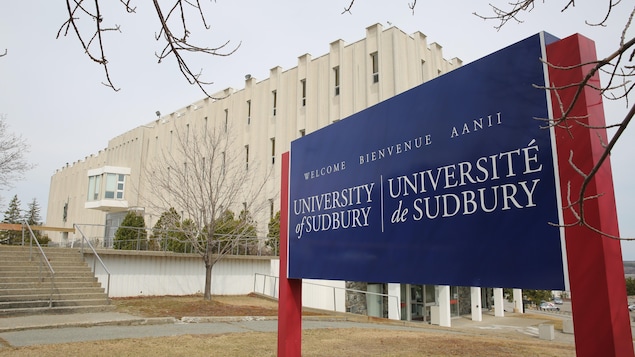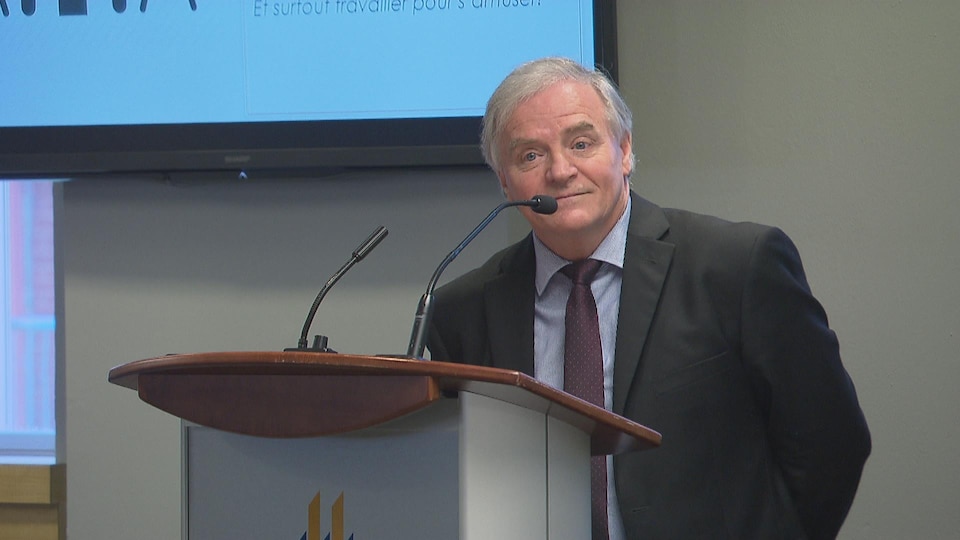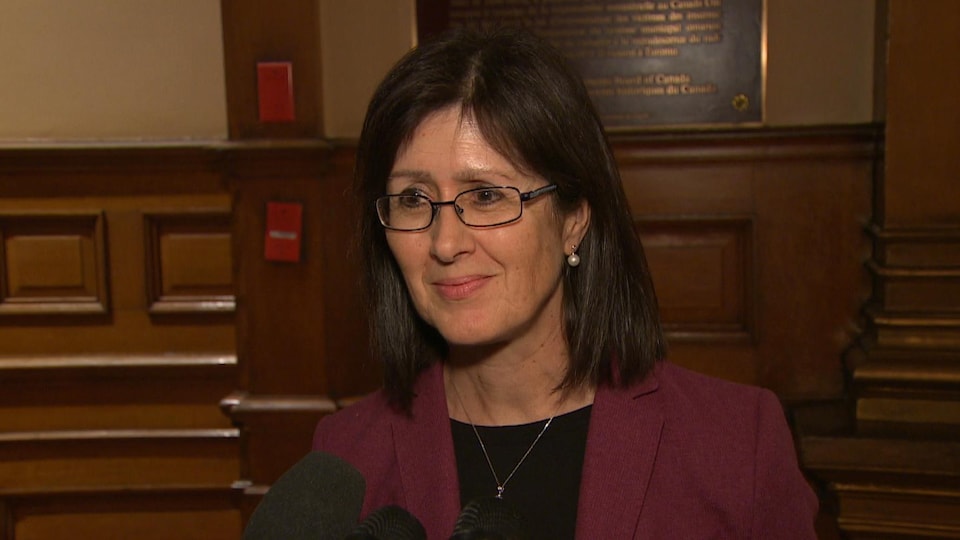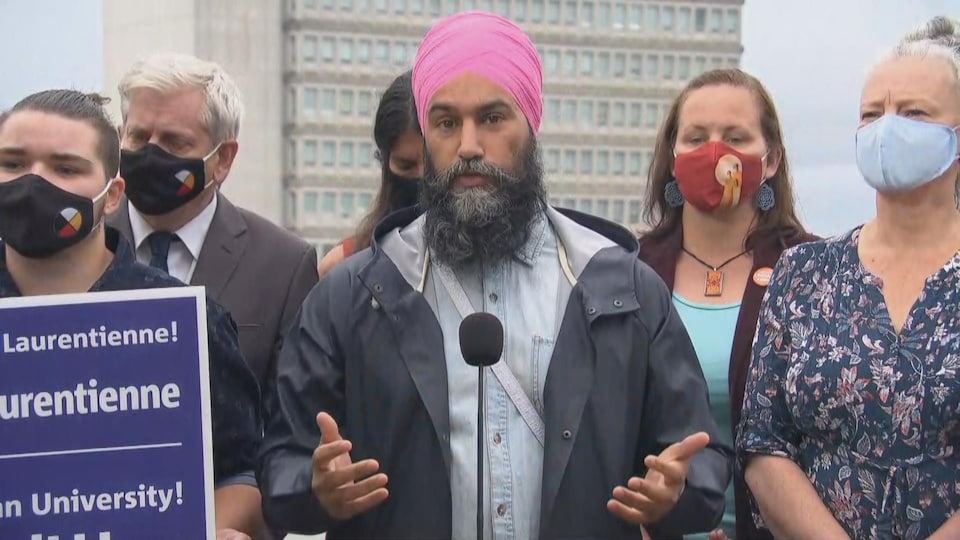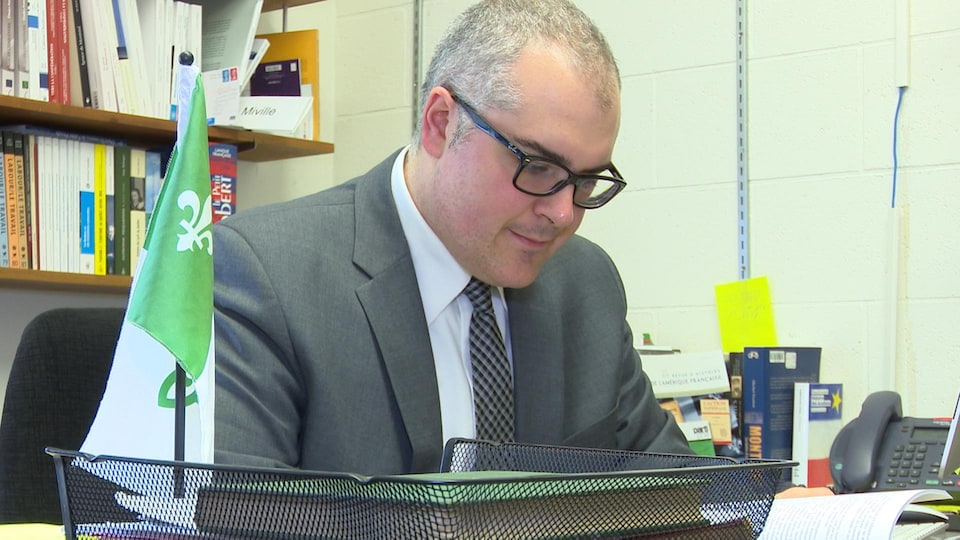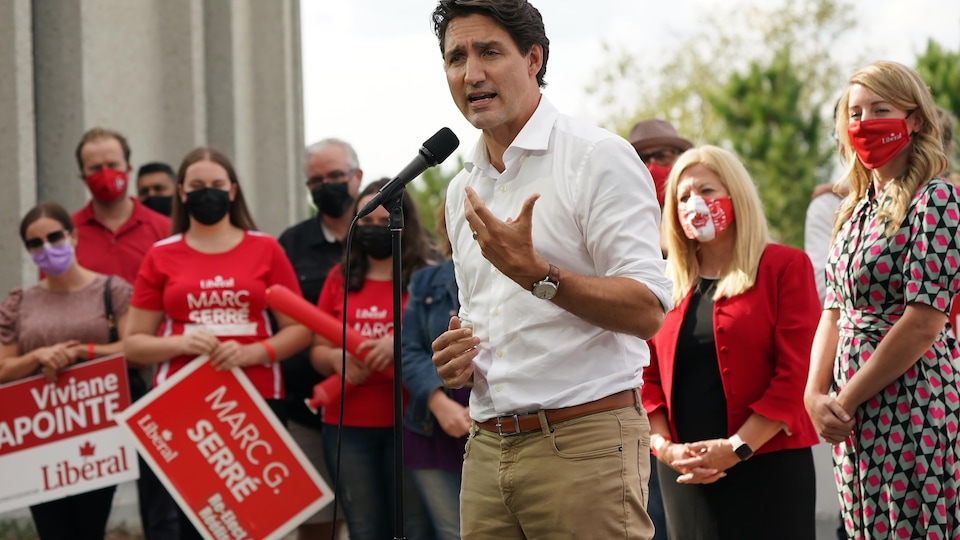Now, it is not possible to finish the baccalaureate entirely in French. […] Next year I will have to take English language courses, because they are mandatory, but they are not offered in Saint-Jean.
student at 2NS Chiara Concini, who earned her Bachelor of Arts at the Saint-Jean campus, says she sees firsthand the effects of her institution’s financial difficulties that led to the cancellation of several courses in the past year.
Many other students find themselves in the same situation, says the person who is also the external vice president of the Saint-Jean College Association.
A former immersion student, she made studying in French a point of honor. And in his province, the Sanctuary of Saint-Jean seemed to him the best option. But at the age of 19, this English-speaking Edmonton begins to imagine a future away from home.
I know that next year the majority of my classes will be in English if I continue my studies on campus. So I look at options, like the University of Ottawa, because I really want to study in French
as you say.
difficult network
The Saint-Jean campus is not the only French-speaking post-secondary institution facing difficulties, notes the Association of Colleges and Universities of Canadian Francophonie (ACUFC), which includes 22 Canadian colleges and universities for la Francophonie.
Even if the University of Moncton avoids a scary shortfall this year, it is also looking for a second wind.
We have a structural operational deficit. Because of inflation, there are additional fees each year that can be anywhere from $2 million to $3 million, while regional subsidies are stable.
Dean and Vice President Dennis Prudhomme explains. It ends up catching up with different programs in terms of human resources, infrastructure, and student services, for example in mental health.
We did not have a “Black Thursday”, we lived ten years of darkness.
The University of Moncton has decided to increase its tuition, but this is a double-edged sword, says the university’s president.
Our mission is to increase access to post-secondary education for Acadians and Francophones […] So we have to be careful not to become a hindrance. […] And if we are too close to our English-speaking competitors, it will tempt many Acadians to continue their English training.
special role
The role of French-speaking post-secondary institutions isn’t just about imparting knowledge, recalls Linda Cardinal, professor emeritus at the University of Ottawa’s School of Political Studies who specializes in Canadian Francophonies. That’s why Canadian francophone organizations are a priority for the federal election campaign, she says.
These are the new cultural centers, because the future of minorities, their development and the reception of immigrants through them …
Mrs. Cardinal analyzes.
Acadian society needs strong educational institutions to ensure its survival.
All eyes today are on the federal government, which funds some of these institutions as part of its role in developing formal language minority communities.
If we appeal to the federal government, it is because the provincial governments have been somewhat self-righteous with regard to post-secondary education.
, believes the president of the University of Moncton Professors Association, Edmonston campus, Julian Massicott.
Denis Prud’homme estimates that he will need an additional 1,000 students per year to be able to get unleashed. But in the demographic context of New Brunswick, achieving such a goal would not be easy.
Funding formulas are based on numbers and numbers in minority mode […] always punished. […] We can’t expect […] To renew the lockers only by registering students, because we will not have courses for 600 students as in major universities
Mrs. Cardinal remembers.
Campaign issue
The stake seems important enough to get the parties’ attention. Proof of this is the recent visit of Jagmeet Singh and Justin Trudeau in Sudbury, against the backdrop of a crisis at Laurentian University.
The issue of funding for French-speaking post-secondary institutions, particularly on the “in order” model proposed by Sudbury University, has become a national issue. And [notre] The institution has somehow become the symbol
, says University President and Vice-Chancellor of Sudbury University, Serge Miffel.
The Association of Francophonie of Ontario (AFO) is asking each party to publicly support the project to transform Sudbury University into a francophone university.
Obviously, with a commitment on all sides, this means that Ms. Dunlop [ministre des Collèges et Universités] Just have to sign
Judge M. Mayville, we are still waiting for the province’s decision to move the project forward.
Obligations and requests
In Sudbury, the leader of the Canadian Liberal Party has pledged to invest an additional $40 million annually in universities in language minority communities. Conservatives propose creating a new budget envelope of $30 million annually to provide federal funding to French-speaking post-secondary institutions. The New Democratic Party, for its part, has not yet determined what support it promises.
It really is music to our ears
, says the President and CEO of the companyACUFC, Lynne Brouillette, who states that permanent funding has been required for years. Additional funding will bring about this stability that does not currently exist. […] To increase the ultimate training in French.
Francophone issues are Canadian issues. Bilingualism is a Canadian issue.
There is already some support from the federal government, but what we have seen in recent years is clearly not enough
Ms. Brouillette explains.
The three demands ofACUFC :
- Regulations under Part VII of the Official Languages Act
- A public policy statement recognizing the civic mission of post-secondary institutions in the context of the Francophone minority
- A new permanent program to support post-secondary institutions
Mr. Prud’homme argues that this additional funding should be paid directly to the foundations, and not be dependent on projects Because in a francophone institution in the case of minorities, the number of students is always limited and when the federal funding ends, the university has to accommodate
, He said.
The Executive Director from’ACUFC He insists that French-language post-secondary institutions are important allies in enabling the government to achieve its goals, such as increasing bilingualism, but also in responding to labor shortages, particularly in education.
He states, moreover, that at the end of the election, he wasACUFC He will start a public meeting on post-secondary education in a minority environment, the results of which will be known in the spring of 2022.
On your agenda:
Francophone issues will be at the center of the debate moderated by Mathieu Nadon on September 15, from 8pm to 9pm, which will be broadcast live on RDI, in addition to being available on digital platforms and social networks.From Radio Canada.

“Alcohol scholar. Twitter lover. Zombieaholic. Hipster-friendly coffee fanatic.”

